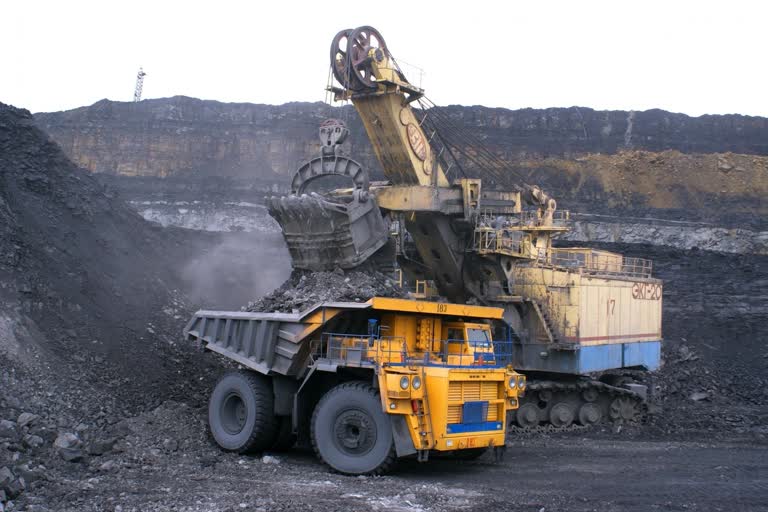Hyderabad: Setting aside the monopoly of the Coal India Limited, the central government has permitted private organizations to mine coal for commercial purposes and unveiled progressive reforms in the coal sector of late. The Union Cabinet approved amendment to the Mines and Minerals (Development and Regulation) Act of 1957 and the Coal Mines Act of 2015 and issued an Emergency Ordinance.
Despite the government's optimistic expectation that the coal sector will remain competitive with this initiative of February 2018 leading to price reduction, the tangle of regulations is not yet solved. Legislative bottlenecks should be cleared if the objective of the government for higher participation of competitors in the bids or hundred per cent foreign direct investment is to be achieved, as envisaged in last August while permitting FDI.
So far, people from the power and steel sector have been allowed to participate in the auction only if they have experience in coal mining in India. Thanks to the Ordinance that those conditions have been revoked paving way for the participation of major international companies like Peabody, Glencore and Rio Tinto.
Coal supplies need to be continuously ensured to meet the needs of the cement, steel and electricity industries. India had to import over 23 billion tonnes of coal from overseas last year to reduce the gap between demand and supply. Of this, we could have cut at least 13 crore tonnes from the foreign imports with a huge saving to the exchequer, if we were able to source it from domestic reserves.
The Centre hopes that due to the new reforms, competition in the bidding process will increase and the coal generation will spark. Predictions that due to the entry of multinationals, state-of-the-art technology will be available for the extraction of more underground coal deposits are driving new hopes.
Year after year the manufacturing sector has been suffering due to reduced coal supply in the country. Coal India, which accounts for more than three-quarters of domestic coal production, is lagging behind in achieving its targets causing high foreign imports bill. Coal India came into being in 1973 two years after the nationalization of coal mines. Since then, it has been consecutively failing in meeting the supply of this most important raw material to many heavy industries resulting in dependency and investments from outside.
Read more:Retail inflation may force RBI to hold rates: Report
Consequently, the Modi government has resorted to corrective measures in light of expectations that the latest technology will be helpful. Recognized as 'Maharatna' public sector undertaking, Coal India Limited produces around 60 crore tonnes of coal. If it does not muster enough energy to meet the specific target of a hundred million tonnes by 2023-24, it will be forced to join BSNL, which is suffocating with private competition.
The government, which is promoting foreign investment and creating direct and indirect employment opportunities, should also keep in mind the welfare of nearly three million Coal India employees. Now, it is for Coal India to work with renewed energy encouraged with the assurances given by Prahlad Joshi, Minister for Coal and Mines that more fields will be assigned to it. By the time the FDI inflow stabilizes, if Coal India improves its performance and achieves its targets, it will auger well for Nation's development.
India's situation is a little strange in terms of deposits and imports with regard to coal, also known as black gold. India ranks fifth after the US, Russia, Australia and China in the list of countries with the highest coal reserves. In terms of maximum imports, it is the second largest country (16.2 per cent) after Japan (16.7 per cent).
It is well known that the erstwhile UPA government was involved neck deep in coal scams by awarding coal mines indiscriminately to their own people misusing the Nationalization Act. These corrupt practices since 1993 resulted in Supreme Court's nullification of 214 coal fields’ allotment six years ago.
The ten point agenda declared by Modi government that it will encourage transparency through e-bidding process should result in a better model. Coal India and other multinationals should be encouraged to reduce coal imports to a minimum. Only twenty nine coal mines have been auctioned so far from the cancelled coal fields.
It is time to cleanse the lethargy crept into the government machinery with regard to issue to mining leases and successfully implement reforms. Foreign direct investment will be on the upswing only when the pro-business climate is clear. The Supreme Court has directed the Centre to consolidate its rules and regulations making the concerned leaseholders responsible for re-greening wherever mining has been completed.
The reforms process started by the centre should fulfill the spirit of the Supreme Court's Commandments to improve the biodiversity.



